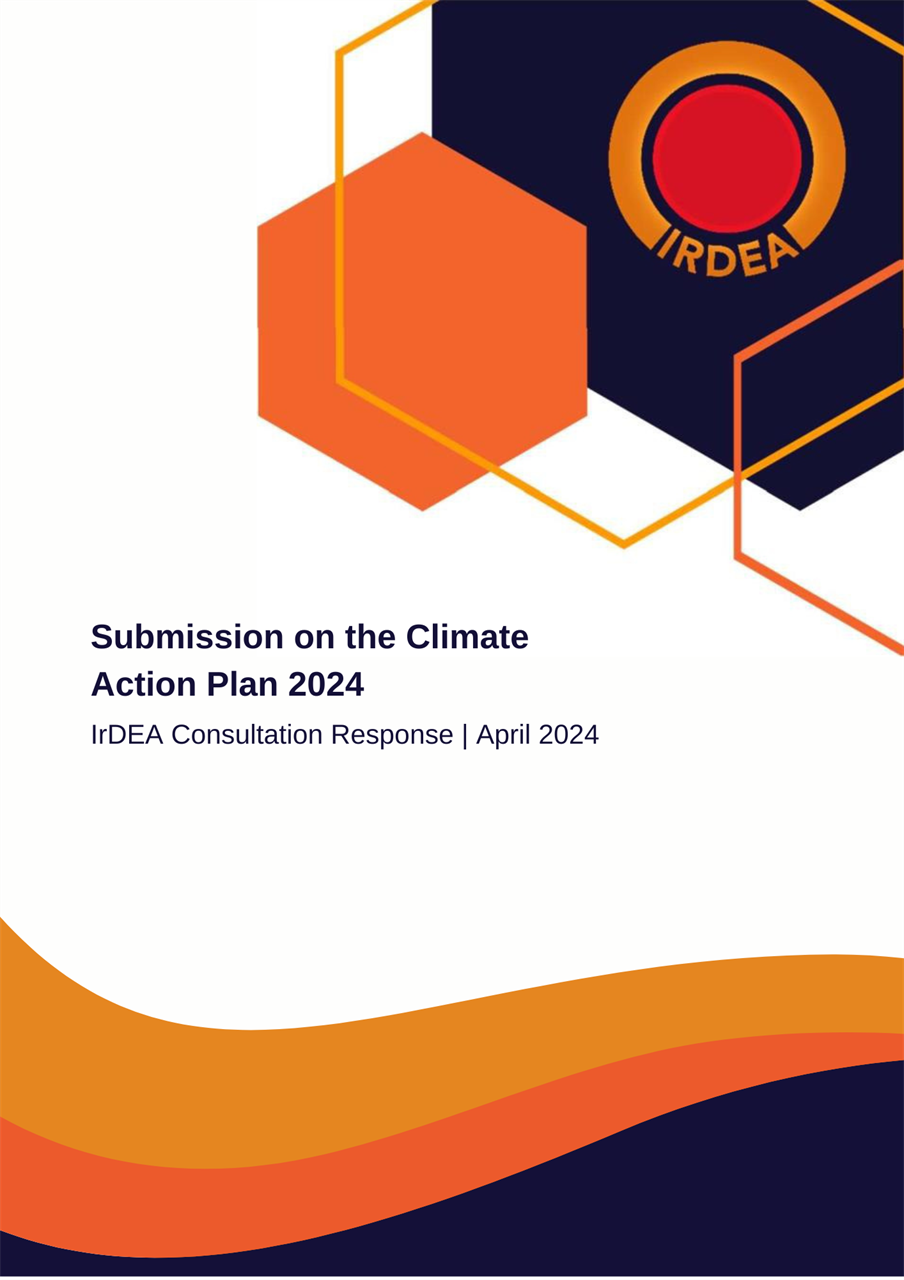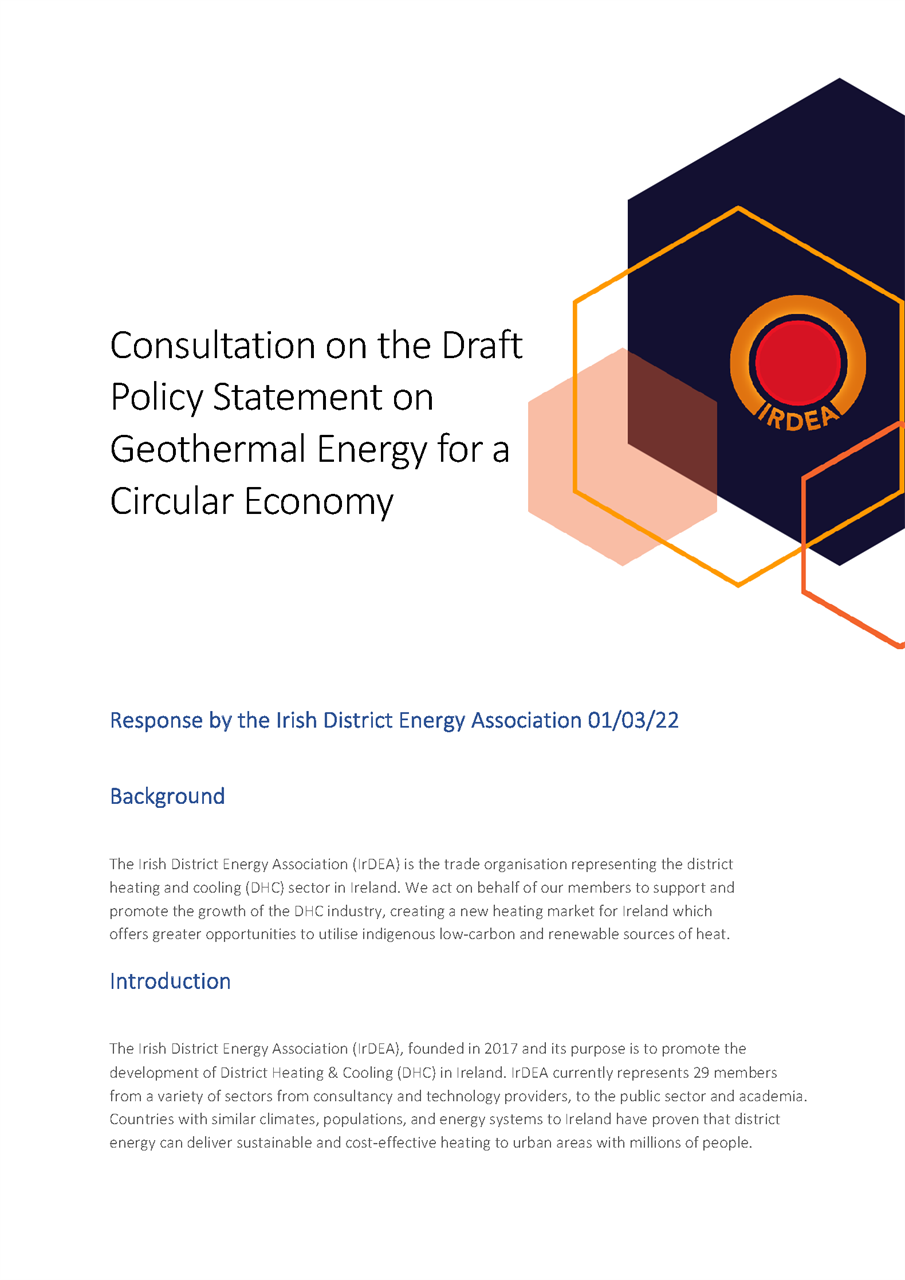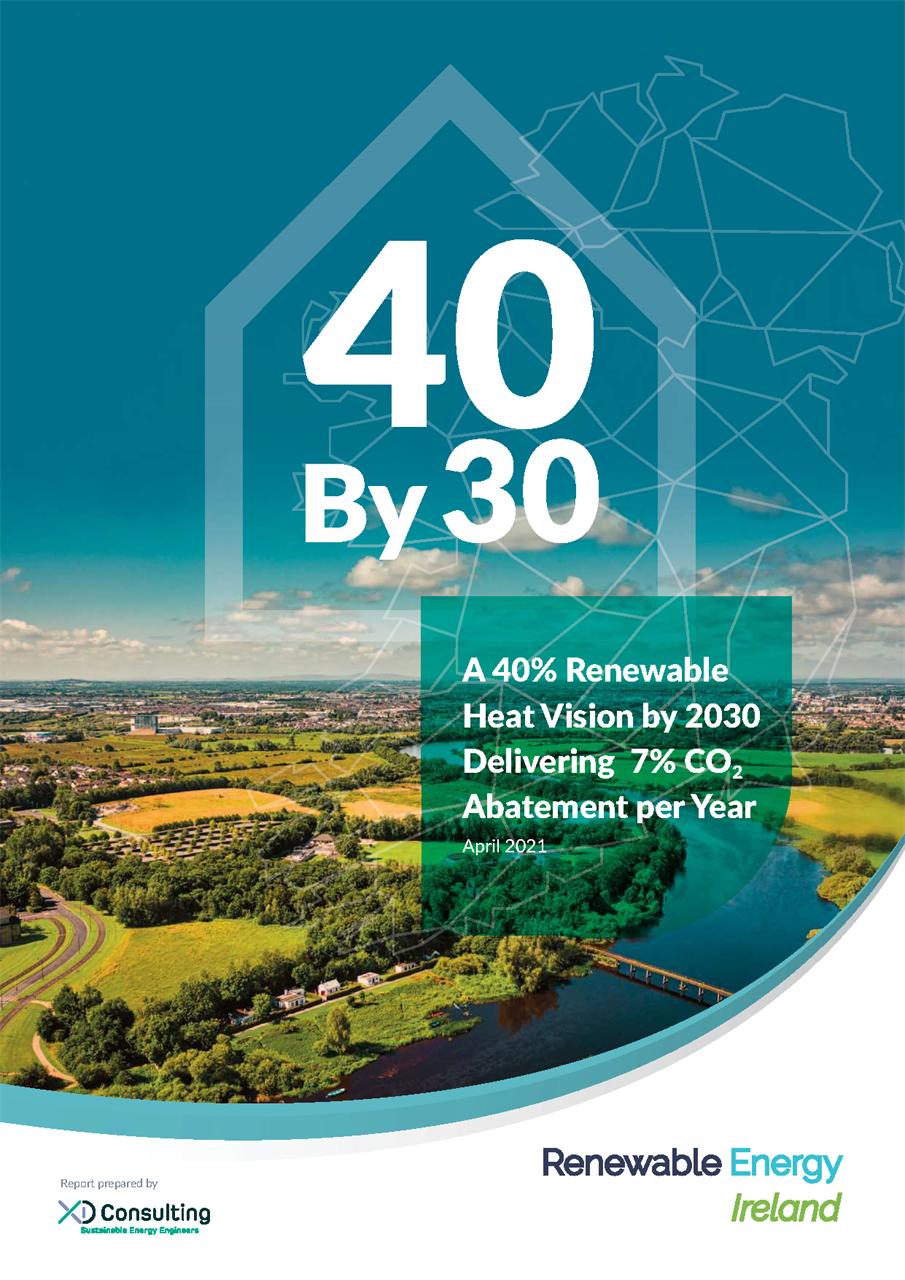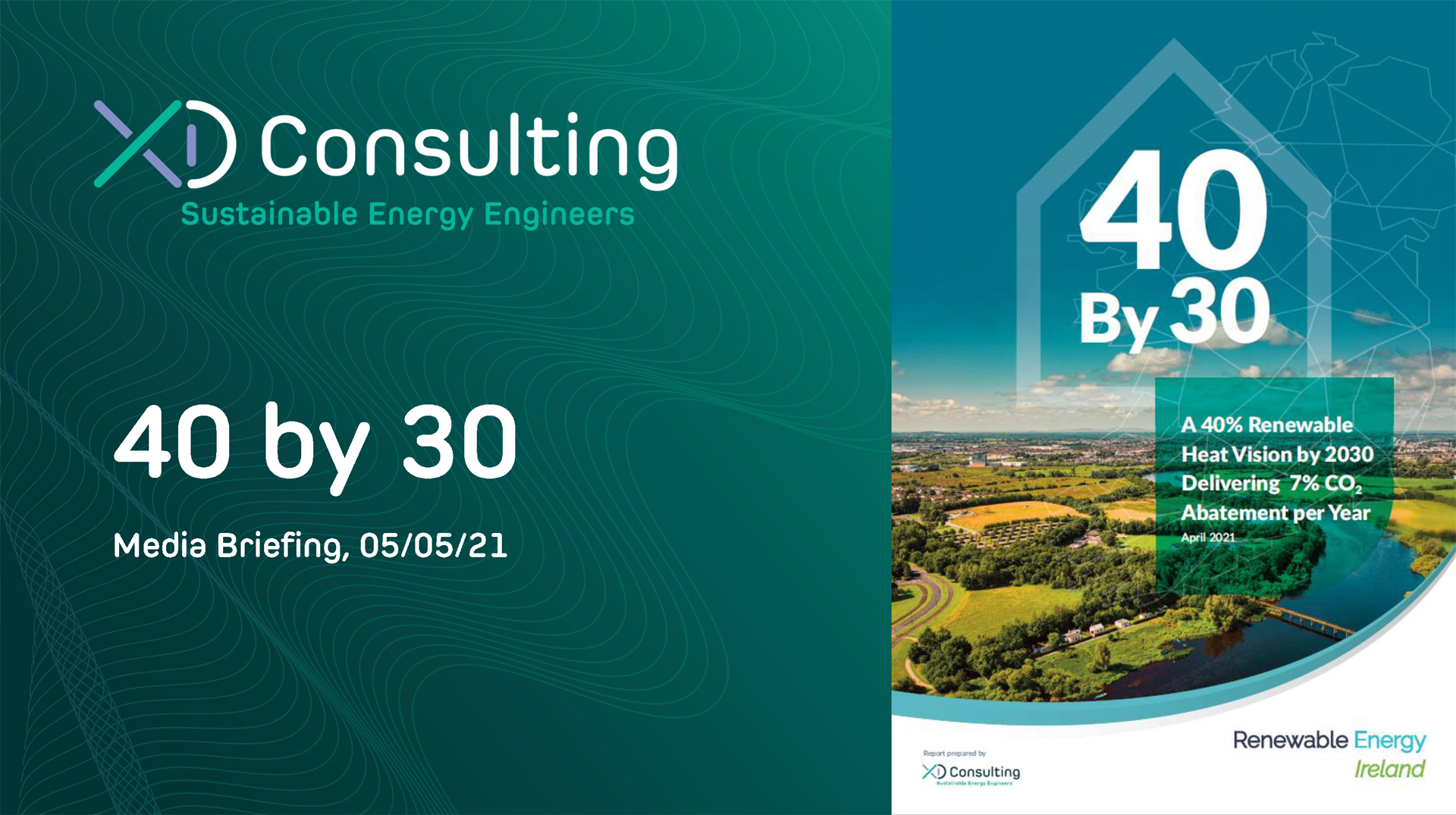| Irish District Energy AssociationSupporting and Promoting District Heating and Cooling in Ireland |
DISTRICT HEATING IN IRELAND REPORTS
RECENT SUBMISSIONS & POLICY PAPERS
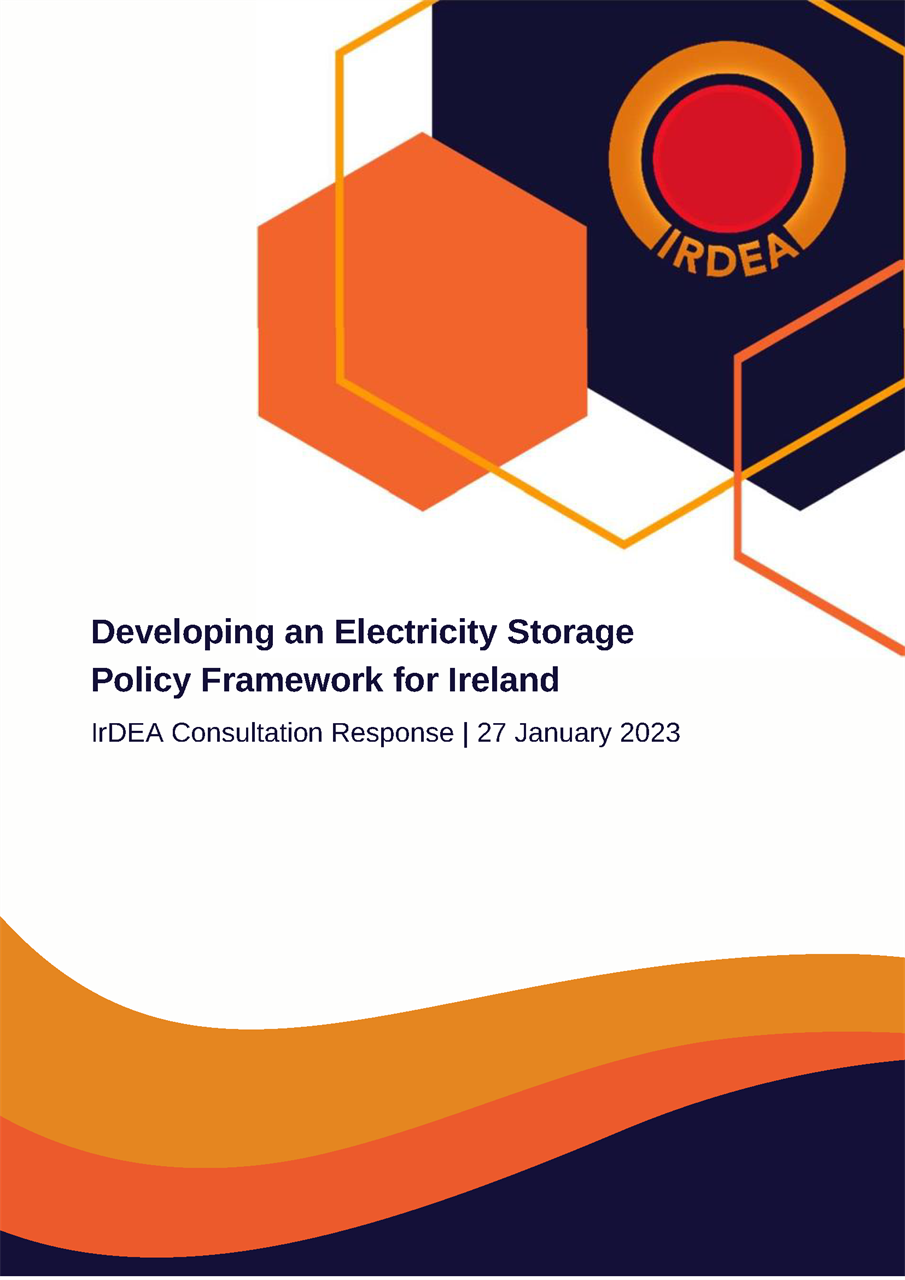
IrDEA Electricity Storage Policy Framework Consultation Submission Jan 2023 - Final (1).pdf At approx. 60 TWh per annum, heat makes up 42% of final energy demand in a typical year for Ireland (SEAI 2019). Decarbonisation in the sector has, however, lagged behind electricity, with total fossil fuel based CO2 emissions from building and industrial process heating remaining around 14.1 MtCO2. This equates to approx. 38% of total energy-related CO2 and 24% of total national greenhouse gas emissions – natural gas (39%), oil (36%), and coal and peat (25%) (SEAI 2019). Significant action must be taken to address this if Ireland’s net zero emissions ambitions are to be realised. The Irish District Energy Association (IrDEA) aims to help address this problem by driving the development of the Irish district energy sector. Though relatively new and underdeveloped in Ireland, district heating is well-established as means of providing sustainable heating solutions to industrial, commercial and residential energy consumers. With between 54% (SEAI) and 58% (Europa-Universitat Flensburg 2019) of Irish building identified as being suitable for district energy, this form of heating is primed to lead the decarbonisation of the sector. Energy storage, particularly largescale thermal energy storage systems (TES), is an integral part of this. IrDEA offers the following comments in response to the call for submissions on developing an Electricity Storage Policy Framework for Ireland. We have focused specifically on energy storage as it relates district energy sector, in particular thermal energy storage systems (TES). As a general comment, however, we would strongly encourage the expansion of the policy framework beyond electricity storage to facilitate a whole system approach with respect to energy storage... (read on)
|
Tipperary County Development 2022 2028 Consultation 2022.pdf The Irish District Energy Association (IrDEA) is the trade organisation representing the district heating and cooling (DHC) sector in Ireland. We act on behalf of our members to support and promote the growth of the DHC industry, creating a new heating market for Ireland which offers greater opportunities to utilise indigenous low-carbon and renewable sources of heat... (read on) | Draft Policy Statement on Geothermal Energy for a Circular Economy 2022.pdf The Irish District Energy Association (IrDEA), founded in 2017 and its purpose is to promote the development of District Heating & Cooling (DHC) in Ireland. IrDEA currently represents 29 members from a variety of sectors from consultancy and technology providers, to the public sector and academia. Countries with similar climates, populations, and energy systems to Ireland have proven that district energy ...(read on) |
This plan was developed by XD Consulting on behalf of REI and with the expert advice of organisations working in district heating, bioenergy, heat pumps, renewable gas and geothermal. The plan clearly shows that 40 per cent of Ireland’s heat can be provided by renewable sources primarily from bioenergy, heat pumps, renewable gas and district heating networks. There is no single solution to decarbonising our heating system but we can heat our homes, schools, hospitals and businesses using a combination of several different heating technologies... (read on) |
|
Policy Archive |
- Policy Framework for the Development of District Heating in Ireland Submission 2020.pdf
- Policy Framework for the Development of District Heating in Ireland 2020 REI Submission.pdf
- The effect of Part L Building on the District Energy sector in Ireland 2020.pdf
- District Heating Can Supply the Heat for 10 per cent Ireland by 2030 and Save Almost 1 Mt CO2 Per Year 2020.pdf
- Call for Expert Evidence Climate Action Plan 2021 2020.pdf
- Best Practice In Heat Network.pdf
- IrDEA Heat Atlas Overview.pdf
- Transition Roadmap for Developing District Heating in South Dublin 2019 Codema.pdf
- Eastern and Midland Regional Assembly Draft Regional Spatial and Economic Strategy Submission 2019.pdf
- Developing District Heating in NorthcWest Europe 2019.pdf
- Initial Public Consultation National Energy and Climate Plan 2021 2030 2018.pdf
- IDEA Kickoff Workshop 26th January 2018.pdf
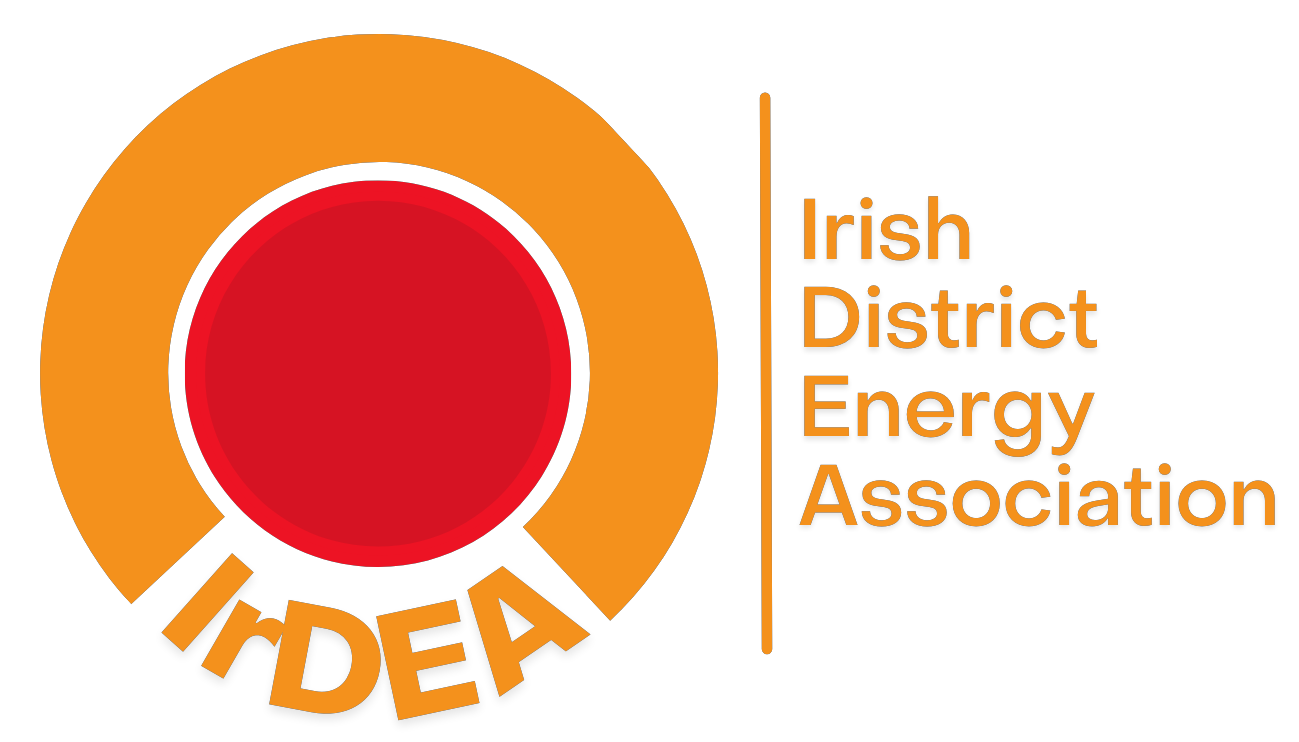



.png)


